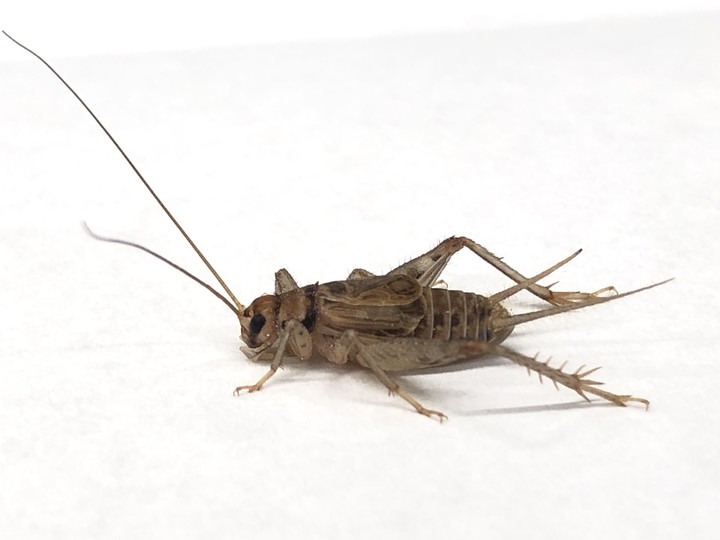Insect farming for food and feed
 Adult male Gryllodes sigillatus
Adult male Gryllodes sigillatus
The global demand for protein is expected to increase wth a growing population. Current farming practices are expected to fall short of meeting this demand. The problem is to find alternative sources of protein that can scale with a growing global population, while also being sustainable and space-efficient. Insect farming is a promising solution to provide a sustainable source of protein. The challenge for farming operations is to improve the scalability and output to meet the growing demand for alternative protein.
One way to improve the output of a farm is to increase the yield of a harvest. To this end, the life history traits of an insect, as well as the biotic and abiotic conditions of the farm form avenues of exploration to increase yield through experimental manipulation of these variables. This project will quantify how changes in biotic and abiotic conditions affect farming output, identify optimal values that maximise yield, and evaluate how to translate experiments to a farm with a focus on crickets for human consumption. These results will inform farming practices for a growing population.
This is a NSERC-Mitacs Alliance grant awarded to Heath MacMillan and Sue Bertram at Carleton University.
